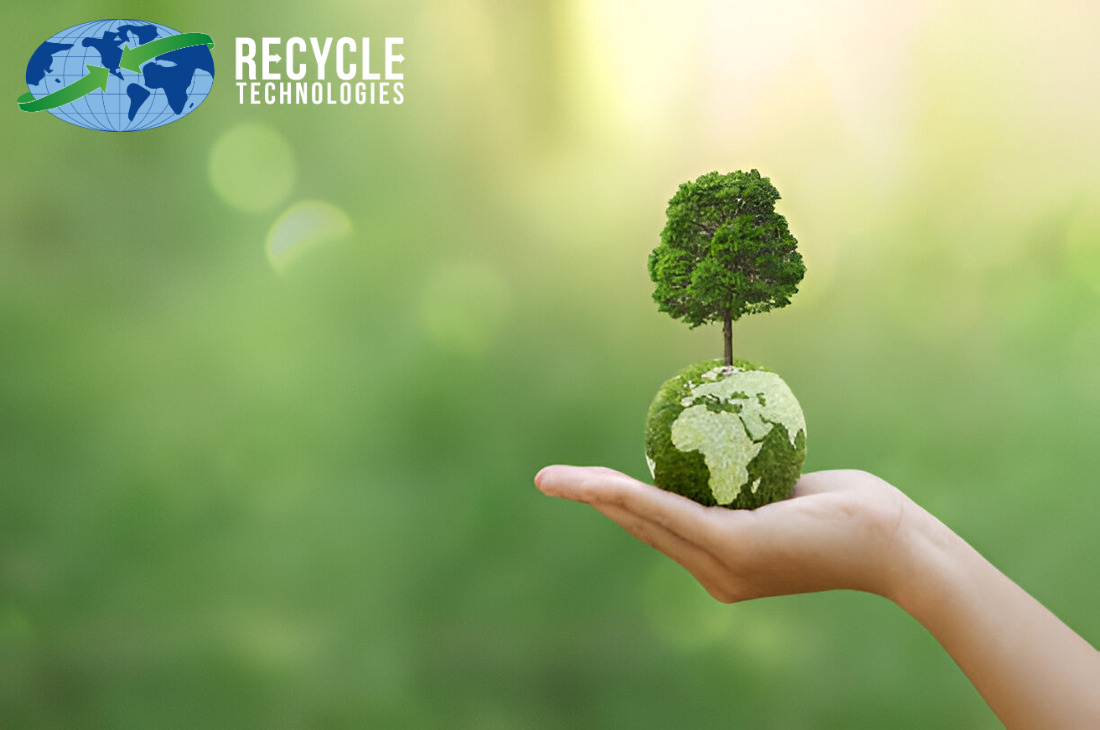Now, where do you stand on the next 40 years of environmental awareness?
When companies adopt a commercial recycling solution, they do so out of some belief in the process’s ability to reduce waste, generate cost-savings and eliminate liabilities associated with improperly discarded materials. Unfortunately, implementing a recycling solution does not automatically guarantee these outcomes. To avoid making common and costly recycling mistakes, companies must understand the solution they have in place, which involves asking questions, examining assumptions and dispelling myths.
This Earth Day, Recycle Technologies encourages you to enhance your recycling perspective by examining your recycling process. Here are some questions and considerations to get you started:
KNOW YOUR RECYCLER
▪Is your recycler currently licensed and permitted by a credible agency?
▪Has your recycler undergone an inspection by its licensing agency?
▪Does your recycler have any violations?
These are reasonable questions that you should have answers to before going ahead with a recycler. When your liability is at issue, you should always feel free to ask. Keep in mind that a responsible recycler will provide this information upfront before you ask for it.
KNOW THE PROCESS YOUR RECYCLER USES TO RECYCLE YOUR PRODUCTS
When you pay to have your materials recycled, you’re paying to have them broken down, separated, decontaminated, shredded, melted, molded and made available for reuse in industry. Make sure your recycler is not:
▪Selling your equipment as is for reuse: reuse is a great way to continue the useful life of materials, but not necessarily for businesses that deal with confidential client and employee information.
▪Sending your materials to a hazardous waste landfill: landfilling does not eliminate liability and depending on your specific product handling requirements, you might, without even knowing it, be using disposal methods that are illegal as well as irresponsible.
KNOW WHAT CREATES LIABILITY; HOLD YOUR RECYCLER ACCOUNTABLE TO A PROCESS THAT ELIMINATES THAT LIABILITY
Materials like bulbs, batteries, ballasts, and e-scrap require special disposal because they contain harmful contaminants like mercury, cadmium, and lead. Informal disposal of these materials can lead to the leaching of pollutants from landfill and incineration sites, which in turn, can lead to long-term environmental damage and even health risks.
Remember that nowadays, the polluter pays; and even companies that unknowingly contribute to pollution problems (companies that thought they were avoiding this potential by enlisting the services of a recycler) can be held liable for contaminated land, groundwater or other natural resources.
KNOW WHERE YOU STAND ON RECYCLING; KNOW HOW YOUR POSITION RELATES TO “THE BIG PICTURE”
Some companies are gung-ho to start recycling, while others see it as an obligation rather than an opportunity. Some companies see recycling as a costly and redundant alternative to waste disposal; they have a hard time budgeting beyond the start-up costs and relating their single initiative to the larger environmental picture.
▪Of course, there are start-up costs associated with recycling, but as ecocycle.org points out, these initial costs “will, in the long run, be offset by reduced trash disposal fees and less waste creation.” The website goes onto suggest that consumers respond well to companies known for their environmentally conscious commitments – and this much we can gather from our daily exposure to green-themed ads and “contains recycled materials” claims.
▪The benefits of recycling extend from company to industry to environment. As recycleminnesota.org points out, “Recycling is not just an alternative to traditional solid waste disposal, it is the foundation for large, robust manufacturing industries in the United States which use recyclable materials.” Every contribution counts! One by one, individual commercial recycling initiatives have gone a long way toward supporting our nation’s industries and protecting our nation’s natural resources.
THE LOWEST PRICE ISN’T THE BEST DEAL IF YOU DON’T GET WHAT YOU PAY FOR
The low-cost provider is not always the best solution. When the low ball price wins in an area and drives out the competition, the rates always rise – sometimes double, triple or even quadruple in price because there is no competition left.
When it comes to recycling specifically, the main issue is a liability. The low-cost provider might be cutting corners in order to put forth a cheap deal, and if this is the case, it’s possible that your basic requirements for product handling are not being met. The cheapest price might be tempting at first; but if the job isn’t getting done right, then the service has no value – it means that instead of getting a good deal for something, you’re actually overpaying nothing.
If you’re thinking about getting started with a recycling solution or changing the way your company handles its e-scrap please contact us today with your questions. Recycle Technologies has been green and growing since 1993, and we stand by our process by issuing your company a Certificate of Recycling after pickup.












